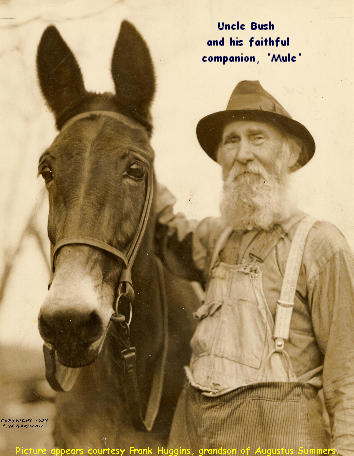I am not a native English speaker and I have sometimes referred to people as male and female (as that is what I have been taught) but I have received some backlash in some cases, especially for the word “female”, is there some negative thought in the word which I am unaware of?
I don’t know if this is the best place to ask, if it’s not appropriate I have no problem to delete it ^^
Female as an adjective is perfectly fine.
A female patient, a female politician, a female customer, etc. That’s the best way to refer to those.
What’s bad is using ‘female’ as a noun: "A female. "
In general, you just don’t use adjectives-as-nouns to refer to people. You don’t call someone “a gay”, “a black”, or “a Chinese”. That is offensive, and “a female” has the same kind of feel.
(there are exceptions to the above: you can call someone ‘an American’ or 'A German", but not “A French”. I don’t understand why - if you can’t feel your way, best just avoid it)
Now, you could get around it by calling someone “a female person” - except that we already have a word for “female person”, and that’s “woman”. And to go out of your way to avoid saying “woman” makes you sound like some kind of incel weirdo, and you don’t want that.
Interesting point with adjectives vs nouns.
‘a Frenchman’ would be more correct than ‘a French’. Because French is only an adjective, while American and German are both nouns and adjectives. But Frenchman is not gender neutral like German or American.
Could go with Francophone, but that’s any french speaking person so that includes canadians, africans, etc.
And, it would seem to make sense to go with Frank, but the Franks were originally germans, then expanded their territory to include France, and the name stuck there but not in their original territory, so is it really correct to refer to the French as Franks? Since no one does it, I would guess not.
includes canadians
Pffft barely, mon ami 😂
You can soften “a black” or “a Chinese” entirely by adding “person” to the end of it. English is weird.
Right, because that makes it an adjective.
My wife tells me that using as an adjective is just as bad and that I should always say “woman”, e.g. a woman politician and never a female politician.
I generally disagree and it seems fine and not disrespectful at all. But it’s somehat less up to me - I’m not a female.
“the suspect is a six foot, white male”
Sounds fine to me
I think that’s because the descriptors come after the noun in reporting. Similar to how documentation is done for other professions, like healthcare. If it’s out of the context of reporting, or other situations listed in the site below, it sounds grammatically strange or rude.
https://myenglishgrammar.com/lessons/adjectives-function-as-nouns/
Source: I’m in healthcare.
Cops (ACAB) are not a good example for moral treatment of others.
Oh dear… And why isn’t “a male” just as bad? And what’s intrinsically wrong about those two as a noun? Why is it ok to call someone “a fire fighter“, “a journalist”, and not “a female”? Is it something to feel shame about? Bah. It’s really beyond me. Thank god i live in Italy, where this kind of stuff still struggles to gain traction, but alas it will do eventually, since hey, you know, we’re all living in america after all. What’s more, it’s not entirely true: now you can get scolded even for using female as an adjective (it happened to me more than once), my friend. And it’ll get worse, just you wait and see.
“I had coffee with one of the males at work”
“There’s a male waiting for you downstairs”
“I need to see a male about a dog”
All of them would be weird as fuck, and yes, they’d sound demeaning. They don’t have the same weird-incel vibe, but that’s just an accident of culture.
Right. This is the best way to figure out if it sounds weird.
If you would use “man” then the word to use is “woman”. If you would use “male” then “female”.
So if someone asks is the doctor male or female? No problem. Even if they ask “is the doctor a male or a female?” Still no problem. Kinda odd but certainly not offensive.
The problem arises when someone says “men and females” that does sound weird and kinda insulting. As would “women and males”.
If you would use the word man, use woman.
If you would use the word male, use female.
Not really offensive on its own, but it carries a reductive and dehumanizing vibe, depending on how it’s used. And the ones who use “female” instead of “woman” are often incels and/or misogynists, giving the term a bad conotation.
Also, Ferengis…
this! an example of someone always using it in a such a way is Andrew Tate. watch any of his videos where he mentions girls and you’ll immediately understand
Jeez, mark that NSFW please
Removed by mod
The way I explained it to a chronically single friend who used this word problematically all the time, and made him stop: Female is a word that describes gender and/or sex. My wife is female, and so is my dog. My wife is literally a woman, and my dog is literally a removed, so if I speak of my wife with the same sterile language that I speak of my dog, then my wife would easily conclude that I have no respect for her. I then asked him how the dating world was treating him, he said “bad”, and I said “of course, because you treat women like dogs”.
Never heard him say it again.
This is a good way of describing it for non-US or non-native speakers. The context is important. If you are speaking in an environment where linguistic sterility or pedantic exactitude are paramount, use female because that is the correct term. Things like studies; medical, statistical, anthropological, etc. If you are in a social situation, use a non-sterile term like woman for an adult, girl for a child, or some other non-pejorative colloquial term. If “chick” or “dame” or “babe” are acceptable to the girls/women of the social circle, go wild with them, if not, don’t. This is viable advice for any pronoun or colloquial reference, no matter the gender/sex of the people around. Their emotions matter.
Also, if you are speaking with physists about physics, object pronouns become appropriate because no matter how offended people get, they have a volume and warp spacetime, so therefore they ARE objects. 🙃
Context is important. If I say: “Sexual dimorphism is when a species has two distinct sexes, male and female,” I dont think many would find that rude. Now, if I say “Im so sick of females telling me what to do” you might get some cocked eyebrows.
Using it as an adjective in some cases is fine, never use it as a noun, unfortunately due to assholes using it that way it now has a negative conotation.
exactly this
It’s kind of like the difference between talking about people who are black and referring to someone as “one of the blacks”. It’s subtle, but the latter is objectifying where as the former is descriptive.
It’s an adjective not a noun when talking about people. The sort of people who use it as a noun tend to be misogynists and so when people do it they’re often unknowingly writing with a misogynist accent if that makes sense.
Mostly just by association. It sounds very incel-y.
And the infamously misogynistic Ferengi.
“I have a female friend.” (As in “I have a friend that’s a woman.”) “I’ve talked with a female today.” (As in “I’ve talked with a woman today.”)
The first one is fine, because isn’t using the word as an adjective. The second one is derogatory, because it is being used as a substantive.
When used as a noun they’re how you refer to non-human animals so when you use them for people it sounds that you don’t think men/women are human
male/female usually used for animals, for humans usage of man/woman would be the right way
Humans are animals though. Why do they get offended when they get reminded of that fact? Smh, this is why us members of the galactic community don’t like your species too much. /S
Kinda like how ignorant people only thing humans have consciousness while more and more studies show capability in many animals
I’d say it’s a tone and context sorta thing.
Definitely.
[NOT OKAY] “Hey guys, check out those females!”
[Okay.] “There were seventy-five males and sixty females in the study.”
[NOT OKAY] “Gonna go out with my favourite females tonight” (unless you’re a girl in a girls night out and doing a comedic take on the bro culture)
[Okay] “The shoplifter was ~170cm tall, female, wore large sunglasses and ran surprisingly fast for someone in such high heels smelling so strongly of chardonnay”
Why is the third bad
Idk I’m not sure about the rules myself but I imagined it as a man saying that to a bro who would reference the first dude as “a guy” while still referencing women as females.
So essentially it’s just about consistency. For me at least. Either “man / woman” or “male / female”.
Idk I’m not the language police
It’s dehumanizing. Use woman, girl, person.
How about: “The weaker sex” instead?
How about “the fairer sex”?
Saying ‘female’ to refer to a person who is female can sound overly technical or abstracted, and therefore a bit dehumanizing or depersonalizing.
That said, some people over-react, and sometimes it is more appropriate or at least fine to say ‘female’, for example if you were speaking in the abstract about something that spans between women and girls, or is specifically about biological sex.
But most of the time ‘women’ or ‘girls’ or even ‘ladies’ is going to be more appropriate.
What language are you coming from, out of curiosity?











